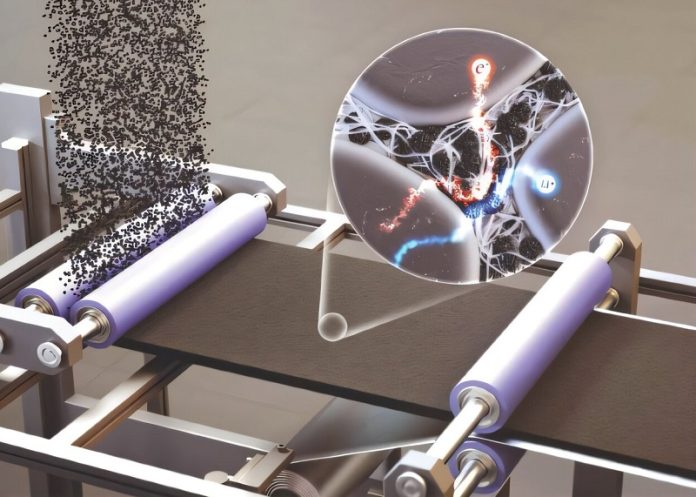
A team of researchers at UNIST has developed a new type of battery electrode that could significantly increase the driving range of electric vehicles (EVs).
The electrode, which is five times thicker than current versions, allows for higher capacity without slowing down charging speeds.
This breakthrough was led by Professor Kyeong-Min Jeong and his team in the School of Energy and Chemical Engineering and was recently published in Energy & Environmental Science.
As more people switch to electric vehicles, there is a growing demand for batteries that last longer on a single charge. However, traditional battery manufacturing has struggled to create thicker electrodes because they tend to clump together during production, reducing performance.
The UNIST team overcame this challenge by using a dry electrode process, which does not require chemical solvents. This makes the battery more eco-friendly while improving its performance.
The new electrode has an areal capacity of 20 mAh/cm², much higher than commercial batteries. It also has a high density of 3.65 g/cm³, which directly increases energy storage. These features could allow EVs to travel 14% farther on a single charge compared to today’s batteries.
Professor Jeong explained, “While current EV batteries struggle to cover the distance between Seoul and Busan, our new technology could enable more than 600 kilometers of travel on a single charge.”
Normally, making a battery electrode thicker slows down charging because lithium ions have to travel a longer distance. However, the UNIST team solved this issue by adding a porous spherical conductive material that boosts conductivity. This allows for fast charging speeds even with the thicker electrode—something that traditional wet manufacturing methods cannot achieve.
The researchers also tested 1 Ah-class pouch cells, proving that their technology works beyond small-scale lab experiments. Hyesong Oh, the study’s first author, emphasized that this discovery is a major step toward mass-producing high-performance, environmentally friendly EV batteries.
This game-changing innovation could make electric vehicles more efficient and practical, bringing us closer to a future with longer-range and greener transportation.



